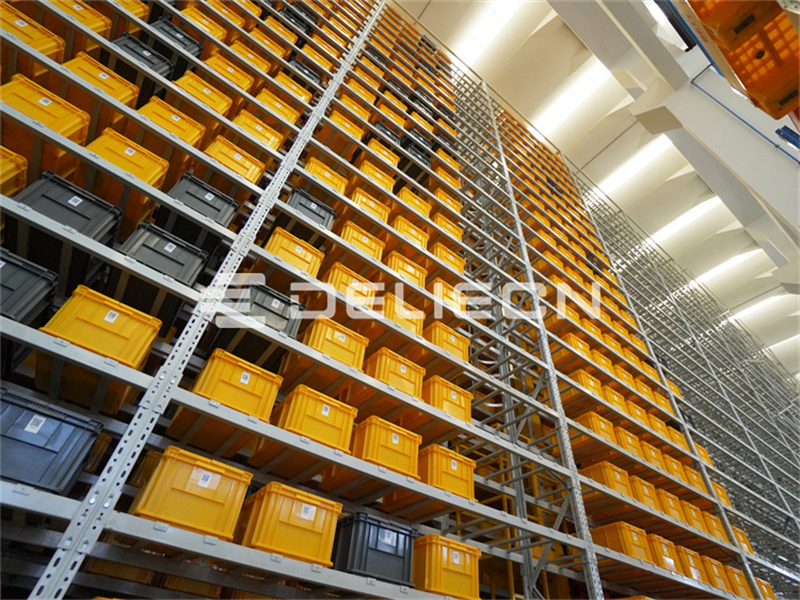
- Home
- >
- About Us
- >
- News Center
Automated three-dimensional warehouse: The release of the cold chain industry is related to the trillion-level market!
2023-12-28Automated three-dimensional warehouse: The release of the cold chain industry is related to the trillion-level market! Recently, the State Administration for Market Regulation issued the "Reply to Proposal No. 00789 (Business and Trade Supervision No. 043) of the First Session of the 14th CPPCC National Committee", proposing to strengthen the supervision and inspection of prepared vegetable producers and operators and supervise the production of prepared vegetables. Enterprises strengthen the co control of key links such as raw material procurement, production sites, equipment and facilities, personnel systems, storage and transportation, traceability records, labeling and identification. The prepared vegetable industry will face the challenges of smart supply chain construction and lean management of warehousing and logistics.

Since the State Council proposed cultivating the "breeding and breeding base + central kitchen + cold chain logistics + catering stores" model, the prepared vegetable industry has gradually evolved from a market environment with extensive management and uneven quality to clustering and large-scale development. According to iiMedia Consulting data, in the third quarter of 2023, there were 905 new prepared vegetable companies in my country, with a high proportion in coastal provinces. At present, my country's prepared vegetable market maintains a high growth rate, and the market size is expected to reach 1.072 billion yuan in 2026.
At this stage, the upstream and downstream industrial chains of the prepared vegetable industry are in the form of coupling, linkage and mutual integration. Prepared vegetable manufacturing enterprises such as central kitchens, OEMs and self-owned factories are faced with the challenges of agricultural and sideline products, rice, flour, grains and oils, condiments, food packaging, etc. Warehouse management of many raw and auxiliary materials,
as well as clean vegetables, semi-finished vegetables and finished processed foods. Due to the wide coverage of the prepared vegetable industry, with the characteristics of multiple categories, SKUs and specifications, there are huge challenges to inventory management and material traceability.
Difficulties in warehousing and logistics management for prepared vegetable manufacturing companies:
01 Foods that are perishable and spoilable need to be stored in a refrigerated, ventilated, and humid environment. Batch materials also need to be partitioned and stratified for intensive storage according to product category, specification, and batch number.
02 It is necessary to achieve more accurate and real-time inventory data records to provide accurate data reference for procurement cycle, production planning, sales demand, etc.; in addition, a full-process traceability system needs to be established to strengthen food safety supervision.
03 It is necessary to reduce the intensity of manual labor, realize the diversion of "people, materials, and sites" to ensure the safety of warehousing operations. It is also necessary to use the collaborative integration of software and hardware to achieve highly intelligent and automated operations in warehousing and logistics.
Over the past few years, Deli has not only had rich experience in the implementation of smart warehousing and logistics projects in the cold chain industry, food industry and other manufacturing industries, but also actively paid attention to the development status of warehousing and logistics in the prepared vegetable industry, and will use top-level planning and design and high-level integration of software and hardware. , providing a more intelligent, Over the past few years, Deli has not only had rich experience in the implementation of smart warehousing and logistics projects in the cold chain industry, food industry and other manufacturing industries, but also actively paid attention to the development status of warehousing and logistics in the prepared vegetable industry, efficient and lean overall solution for smart warehousing and logistics systems for the prepared vegetable industry.
Deli's technical planning team can customize planning for different types of normal temperature warehouses, low temperature warehouses, and high temperature warehouses to achieve safe management of raw materials, auxiliary materials, and finished products. Raw and cooked foods should be stored in strict accordance with regulations. Foods with peculiar smell or that easily absorb moisture should be stored in separate warehouses. Perishable foods should be stored in frozen layers. It also ssatisfies the owner's division of various functional areas and maximizes the utilization of space area.
2. Deli WMS warehouse management system can be interconnected with various management systems such as ERP, MES, SRM, etc. It can apply QR code or RFID electronic label technology to obtain real-time information of materials through data collection terminals, and can also realize prefabrication The historical data of upstream and downstream raw materials and finished products are traced and supervised to ensure the quality and safety of prepared dishes from the source. In addition, WMS can also implement the first-in-first-out management principle according to the validity period and batch based on the complex raw materials and finished product management of prepared dishes.
3. Intelligent handling robots such as pallet/box shuttle robots, RGV (straight through/circuit through), conveyors, elevators, and stackers independently developed and produced by Deli are in Deli’s self-developed WMS warehouse. Under the control of warehouse management systems such as management system and WCS scheduling and monitoring system, the operation path is intelligently planned to achieve small batch, multi-batch and high-density and high-efficiency management requirements, and meet the needs of rapid warehousing, accurate storage, efficient outbound delivery, and intelligent transportation. Flexible picking operations reduce manual labor intensity and improve operating efficiency.
